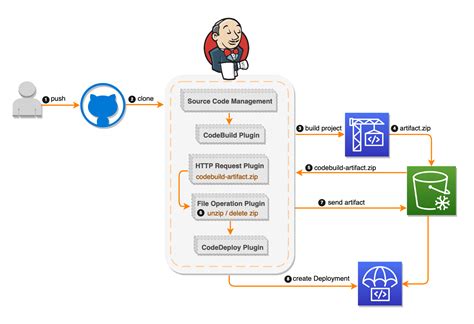In the swiftly evolving landscape of continuous integration and continuous deployment (CI/CD), the introduction of Arm64 runners on GitHub Actions stands out as a pivotal shift. Arm64, known for its efficiency and performance, promises developers faster builds and optimized resource usage, which is essential in today’s fast-paced development cycles. As we delve into this transformation, it’s clear that this move is not only a win for GitHub but also a significant advancement for the broader development community, promising streamlined workflows and reduced bottlenecks. The ability to leverage native Arm64 architectures directly on GitHub Actions means that developers can now bypass much of the emulation overhead, which has traditionally slowed down build processes on non-Amd64 hardware.
For many developers, especially those who have been manually setting up self-hosted Arm runners, this update comes as a huge relief. One user shared their experience, noting that self-hosting Arm64 runners on a tiny Arm Virtual Private Server (VPS) significantly slowed down their entire system. The new GitHub Action runners, therefore, present a scalable solution that alleviates these performance issues. It’s a testament to GitHub’s commitment to enhancing developer experience that users previously had to go through cumbersome setups for what is now seamlessly integrated within their platform. This shift underscores the increasing importance of adaptive infrastructure in DevOps — one that scales efficiently without bogging down systems with other concurrent tasks. The implications are profound, reducing the overhead and maintenance burden on developers who can now focus more on coding and less on infrastructure management.
However, this evolution is not without its doubts and scrutiny. Some developers expressed skepticism about GitHub’s ability to maintain a high-quality experience for self-hosted runners, drawing on experiences with other CI/CD tools that offer similar functionalities. For instance, a developer pointed out that while using GitLab, they found hosted and self-hosted runners trivial to set up and run, thus expecting GitHub to deliver nothing less. This sets a high bar for GitHub, which it appears to be meeting by ensuring that their self-hosted runners behave exactly as their own managed ones do. The strategic approach to integrating this infrastructure allows GitHub to cater to organizations that prefer managing their own hardware, thereby striking a balance between control and convenience.
Interestingly, the discourse around self-hosting versus managed services brings up economic considerations. A few users voiced that despite the promise of performance, GitHub Actions is not a free service, especially when it comes to larger runners designed for organizations. One particular area of concern is the pricing model, which some consider less competitive compared to self-hosted alternatives or other providers like WarpBuild — a platform that has gained popularity for its efficiency and cost-effectiveness. With comments highlighting the stark cost-benefit scenarios, it becomes evident that GitHub needs to continually evolve its pricing structures to remain competitive in a landscape where every second and dollar saved counts. Herein lies an opportunity for GitHub to innovate further, perhaps by offering more granular pricing tiers or usage-based billing.
The announcement also triggered discussions surrounding the broader ecosystem of CI/CD tools, noting that what GitHub has achieved is part of a much larger trend towards cloud-based, flexible, and efficient build systems. For developers eyeing multi-architecture builds, such advancements make it easier to create more inclusive and wide-ranging solutions. This move by GitHub is part of a larger narrative where developers seek not only speed and efficiency but also ease of maintenance and flexibility. As more platforms embrace Arm64 and other architectures, the end-goal of true cross-platform development without the burden of extensive configuration becomes more of a reality. In conclusion, while GitHub Actions’ support for Arm64 is a major leap forward, it also sets the stage for ongoing innovations in CI/CD, fostering a future where development is increasingly fluid, efficient, and tailored to diverse computational environments.


Leave a Reply